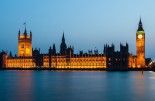Monex Europe: Bank of England hits the panic button

The Bank of England surprised markets today by reaccelerating their hiking cycle, exceeding market expectations, economist consensus and our pre-announcement call for 25bps of tightening.
The 7-2 decision to hike by 50bps now takes Bank Rate to a new cyclical high of 5.00%. Both the nature of the decision and tone of the written communications marked a hawkish shift from recent BoE communications, giving a distinct impression that the MPC has now entered full on panic mode. Notably, the MPC removed all hints that they felt close to a peak in Bank Rate, something that had been a feature of recent messaging. Instead, the BoE has seemingly surrendered, confirming market expectations that significantly more policy tightening is on the way.
Tighter monetary policy will continue to weigh on the economy, and as we have previously warned, given risks to growth and to the housing market, this is not an outlook that will necessarily be positive for the pound. But today's surprise will also reinforce the growing perception that the Bank of England has lost control of inflation, further hurting both the bank's credibility and the outlook for the economy and for sterling. This dynamic was on full display in the aftermath of today's announcement, where despite an initial spike in sterling, the pound sold off modestly as traders struggled to make sense of the news.
Entering this week, the broad consensus amongst analysts was that a 25bp rate hike from the Bank of England was almost certain to be the outcome of this meeting. In fact, amongst economists surveyed by Bloomberg in the lead up to this announcement, this view was unanimous. But today’s shock decision follows on from the publication of CPI data yesterday morning, a print that has clearly set off alarm bells on Threadneedle Street. That release produced the fourth upside surprise in a row, and worryingly saw core inflation rise from 6.8% to 7.1%, suggesting that inflationary pressures aren't just sticky, but well and truly stuck.
Indeed, the services inflation measure that is closely watched by the BoE increased to 7.4% in May, well above the 6.8% projected by the BoE in their recent monetary policy report. In the context of wage data that also shows private sector pay growing far faster than anticipated, these dynamics increasingly look like a wage-price spiral, the nightmare scenario for any central banker.
Private sector pay growth has continued to accelerate in recent prints, fueling inflationary pressures
BoE shocks markets by agreeing with them that much tighter policy is needed
However, despite the strong data, most analysts had continued to hold calls for a smaller rate hike at this meeting, with OIS pricing suggesting just a 30% chance of a larger hike in the run up to the decision. This was in part a function of the complete lack of commentary from BoE speakers that indicated a 50bp rate could be on the cards. But with market expectations looking for a terminal Bank Rate of 6.00%, the pressure appears to have forced the BoE to move now, front-loading their monetary tightening.
This point was emphasised in a statement by Governor Bailey saying that following recent data: 'inflation is still too high' and that 'if we don’t raise rates now, it could be worse later'. Interestingly, the policy statement provided a little more clarity to the MPCs thinking, noting that the 'second-round effects in domestic price and wage developments generated by external cost shocks are likely to take longer to unwind than they did to emerge'. This sounds a lot like the BoE now acknowledging the feedback between wages and inflation, is now a key dynamic at play.
Looking forwards though, there was little indication in today’s communications regarding the path forwards for monetary tightening. The vote split which is sometimes an indicator produced a 7-2 majority decision, seeing dissents from Tenreyro and Dhingra, unsurprisingly given the dovish voting history of both and providing little additional information for markets. Moreover, the statement and minutes contained little guidance as to the size or extent of any further hiking. In our view this represents an MPC looking to keep their options open, with hopes that a shock to the system now could ultimately mean less tightening overall, actions more in keeping with their historic dovish bias.
UK inflation is coming down, but not as fast as the BoE has projected
Therefore, in the absence of steer from the BoE, markets will continue to stick to their guns, expecting a peak in Bank Rate above 6.00%. This is exactly what has played out so far, with expectations for peak Bank Rate only nudging up marginally, despite today’s shock. Given this upshift in rate hiking we now look for 25bp hikes in August and September, to a terminal bank rate of 5.50%. But we also expect data to cool faster in the second half of this year, which should allow the BoE to ultimately undershoot market pricing.
For FX markets, despite today's upside surprise for Bank Rate, the pound has failed to extract any support. Instead sterling modestly sold off as concerns around economic growth and the housing market continue to weigh on the currency. This move was likely not helped by the shock to markets from today’s announcement, which seems to confirm that the Bank of England now feels as if it has lost control of inflation. Not exactly inspiring confidence in the state of the British economy.
Given today’s policy surprise, Andrew Bailey will take part in an interview later this afternoon, where he will presumably provide more rationale for the decision. This is likely to be critical for the next leg in sterling, and the BoE’s credibility with markets.







